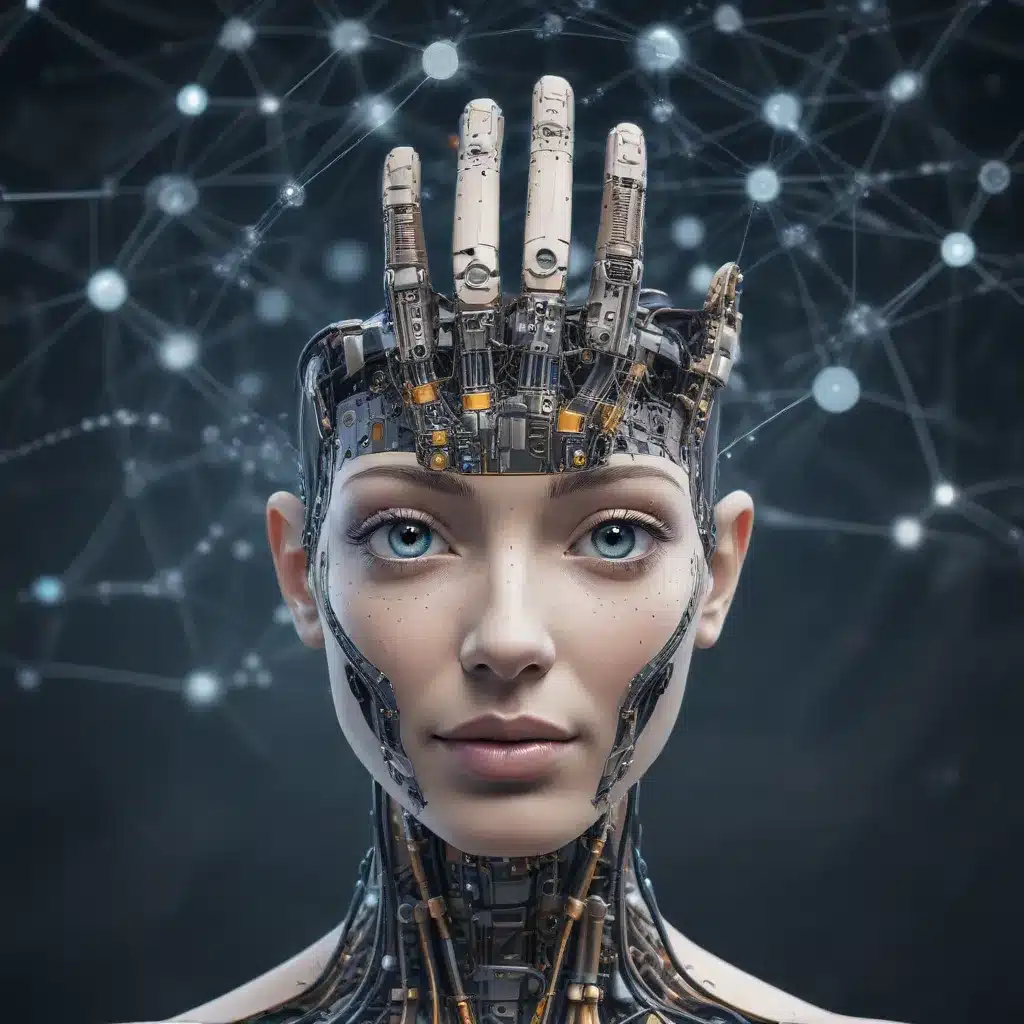
Harnessing the Power of AI for Sustainable Development
In today’s rapidly evolving digital landscape, Artificial Intelligence (AI) has emerged as a transformative force, with the potential to drive remarkable advancements across various sectors. AI4Good, a growing movement, harnesses the power of AI to address pressing social and environmental challenges, creating a more equitable and sustainable future for all.
Defining AI4Good
AI4Good, also known as “Artificial Intelligence for Social Good,” is a multifaceted approach that leverages AI technologies to tackle complex global issues. This holistic framework encompasses a wide range of applications, from improving access to essential services and enhancing disaster response, to promoting social inclusion and environmental conservation.
At its core, AI4Good is about using AI as a catalyst for positive change, empowering communities, and fostering sustainable development. By aligning AI capabilities with the United Nations Sustainable Development Goals (SDGs), this paradigm shift aims to bridge the digital divide, improve decision-making, and drive transformative solutions that have a lasting impact on people’s lives.
Harnessing AI for Community Engagement and Advocacy
One of the key pillars of AI4Good is its ability to enhance community engagement and advocacy efforts. By integrating AI-powered tools and techniques, organizations and community-based initiatives can amplify the voices of marginalized groups, facilitate inclusive decision-making, and drive more meaningful and impactful change.
Participatory Mapping and Data Collection
AI-powered tools, such as mobile applications and remote sensing technologies, can enable communities to actively participate in mapping their local resources, infrastructure, and development needs. This collaborative approach empowers residents to become key stakeholders in the decision-making process, ensuring that their priorities and concerns are addressed.
Multilingual Communication and Language Assistance
AI-powered translation and language processing capabilities can break down language barriers, facilitating communication and collaboration within diverse communities. This can enhance the reach and effectiveness of advocacy campaigns, ensuring that messages and information are accessible to all.
Targeted Outreach and Engagement
AI algorithms can help organizations and community groups identify and reach out to specific target audiences, tailoring their messaging and engagement strategies to resonate with different demographics. This can lead to more effective awareness campaigns, increased participation, and stronger community connections.
Leveraging AI for Sustainable Water and Sanitation Solutions
The water and sanitation sector is another crucial area where AI4Good can make a significant impact. By harnessing the power of AI, organizations can develop innovative solutions to address the pressing challenges of water scarcity, water quality, and access to basic sanitation services.
Predictive Maintenance and Asset Management
AI-powered predictive analytics can help water and sanitation service providers anticipate and respond to infrastructure failures, ensuring more reliable and efficient service delivery. By leveraging sensor data and machine learning algorithms, AI can detect potential issues, optimize maintenance schedules, and extend the lifespan of critical assets.
Water Quality Monitoring and Treatment
AI can play a pivotal role in enhancing water quality monitoring and treatment processes. Computer vision and machine learning algorithms can analyze water samples, identify contaminants, and trigger appropriate treatment responses in real-time. This can lead to more effective water purification, safer drinking water, and improved sanitation outcomes.
Demand Forecasting and Resource Allocation
AI-driven demand forecasting and resource optimization models can help water and sanitation providers better plan and allocate their resources. By analyzing historical usage patterns, demographic data, and environmental factors, AI can predict future demand and guide the strategic deployment of infrastructure, personnel, and financial resources.
Ethical Considerations and Responsible AI Implementation
As the integration of AI in development and social impact initiatives gains momentum, it is essential to address the ethical implications and ensure the responsible deployment of these technologies. Practitioners and stakeholders must proactively consider issues such as data privacy, algorithmic bias, transparency, and the potential for unintended consequences.
By fostering multistakeholder collaboration, promoting open data practices, and establishing ethical guidelines, the AI4Good movement can harness the transformative power of AI while prioritizing the well-being and rights of the communities it serves. This holistic approach helps to build trust, drive inclusive innovation, and ensure that the benefits of AI-powered solutions are equitably distributed.
Empowering Communities through AI4Good Initiatives
Across the globe, innovative AI4Good initiatives are empowering communities and driving sustainable development. From using AI to improve disaster response and resilience, to leveraging machine learning for precision agriculture and sustainable resource management, these efforts showcase the immense potential of AI to create a better world.
One such example is the Joint Action for Water initiative, which harnesses the power of AI to enhance community engagement and advocacy in the water and sanitation sector. By integrating AI-powered tools and techniques, this program aims to amplify the voices of marginalized groups, facilitate inclusive decision-making, and drive more impactful and sustainable solutions.
Conclusion: Embracing the Transformative Potential of AI4Good
As the world faces complex social, environmental, and development challenges, the AI4Good movement offers a promising pathway to harness the transformative power of artificial intelligence. By aligning AI capabilities with the UN Sustainable Development Goals, practitioners, policymakers, and community stakeholders can work together to create a more equitable, inclusive, and sustainable future.
Through collaborative efforts, responsible deployment, and a steadfast commitment to positively impacting people’s lives, the AI4Good approach can lead to groundbreaking advancements in areas such as water and sanitation, disaster response, healthcare, and social inclusion. By embracing this transformative paradigm, we can unlock the immense potential of AI and empower communities to thrive and overcome the most pressing challenges of our time.

